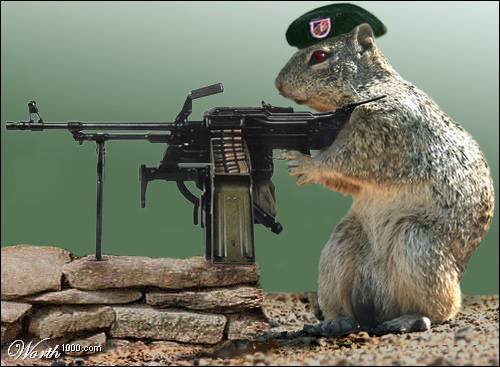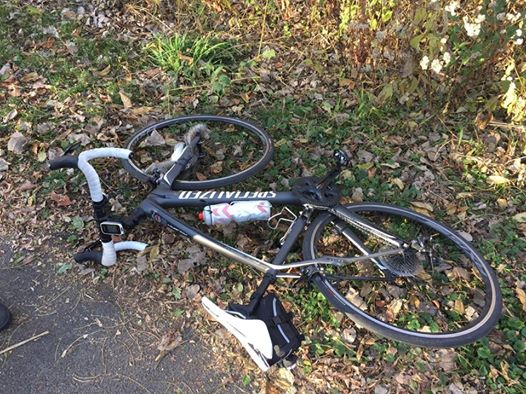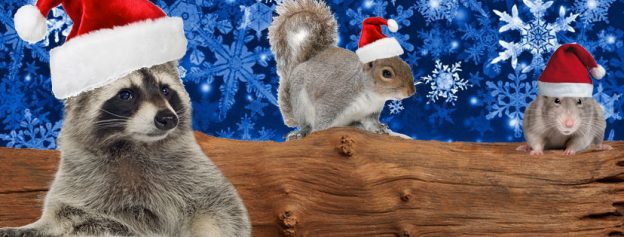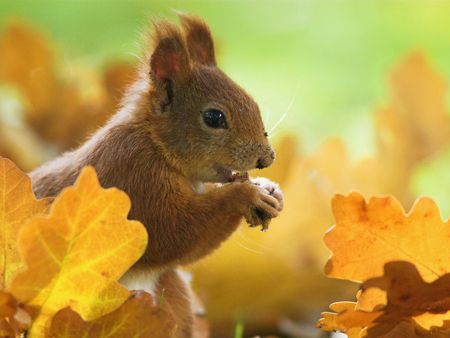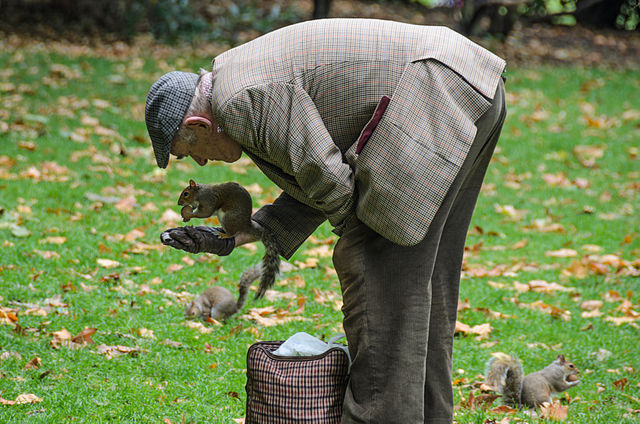
In this post, we’ll discuss whether you can or should keep a squirrel as a pet in the state of Illinois.
This is a funny question for us because we’re not necessarily the biggest fans of squirrels around here.
Sure, they give us plenty of business. We have to remove squirrels from attics, patch holes in siding and soffit, and clean up the messes they leave behind. They sure can keep us busy!
Then there’s the worst thing about squirrels, which is that thousands of home fires a year are caused by squirrels chewing wires. We consider that reason alone to not invite a squirrel into your home.
For other people though, they see the squirrel as having a cute little face, a delightful fluffy tail and tiny little hands they use to pick up and gnaw on food.
So even though we are most frequently asked how to get rid of a squirrel and how to squirrel proof your home, there are still people who want to know…
Can you keep a squirrel as a pet?
The short and easy answer is NO.
 Squirrels are wild animals, and in the state of Illinois, nearly all wildlife is protected under the Wildlife Code (Section 2.2) and cannot be held in captivity. The only exception is if are if you are a licensed wildlife rehabilitator.
Squirrels are wild animals, and in the state of Illinois, nearly all wildlife is protected under the Wildlife Code (Section 2.2) and cannot be held in captivity. The only exception is if are if you are a licensed wildlife rehabilitator.
In Illinois, it is not even legal to kill or trap a squirrel without a hunting license or a nuisance animal removal permit.
Related: Do I Need a Permit to Remove a Nuisance Animal in Illinois?
To be clear, keeping a squirrel as a pet is illegal in Illinois.
Squirrels were once kept as pets in the 18th and 19th centuries by humans, but they didn’t make very good pets and the wildlife laws have changed since then to reflect our modern standards.
There are many animals which are not only legal to keep as pets, but much safer, predictable and ultimately more rewarding than a squirrel.
Reasons not to keep a squirrel as a pet
Squirrels are wild animals – They are not domesticated animals like dogs and pets. Wild animals will be happiest when they are free in the wild, not confined to a cage or your home. Many people would say it is unethical to keep a wild animal as a pet.
They have sharp claws – Their claws are evolved to pierce bark and allow them to climb trees. Imagine what those claws can do to your skin, clothing, and furniture.
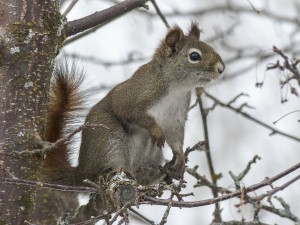 Squirrels can bite without warning – Domesticated animals like dogs have evolved to possess a “bite inhibition reflex”. They know that they’re not supposed to bite, that biting is “bad”. For a wild animal like a squirrel, if they get the thought to bite, they will. There is no counter-thought in their brain to say that “biting is bad”.
Squirrels can bite without warning – Domesticated animals like dogs have evolved to possess a “bite inhibition reflex”. They know that they’re not supposed to bite, that biting is “bad”. For a wild animal like a squirrel, if they get the thought to bite, they will. There is no counter-thought in their brain to say that “biting is bad”.
You will be bitten and scratched – See the above reasons. People who have kept squirrels as pets are inevitably bitten and scratched many times. Professional handlers will usually where protective clothing. Remember, these are wild animals after all.
Squirrels will taste anything – They may take a bite out of anything they see that looks like it might be food including furniture, shoes, wallpaper, drywall, plastics, toys or anything. And unlike dogs, they can climb their way to reach almost anything.
Their diet is more varied than you realize – We all think of squirrels as nut eaters but that is only part of their diet. In the wild, they will eat a varied diet of berries, fruits, vegetables, insects, and worms. If you want a healthy squirrel you need to commit to feeding them like this.
Squirrels can not roam your house free – You would have to keep a squirrel in a cage most of the time. They are intensely curious and highly mobile. You will not be able to keep them out of trouble or contain their destructive tendencies if they are roaming your home freely. It won’t be safe for you or for them
 It is illegal to own a squirrel – If nothing else convinces you, it is illegal to keep a squirrel as a pet. You will be facing a $1500 fine from the state of Illinois, as well as potential fines from your county or city and if you don’t own your home, potential eviction from your landlord.
It is illegal to own a squirrel – If nothing else convinces you, it is illegal to keep a squirrel as a pet. You will be facing a $1500 fine from the state of Illinois, as well as potential fines from your county or city and if you don’t own your home, potential eviction from your landlord.
Instead of trying to keep a squirrel as a pet, a safer alternative is to try and befriend a wild squirrel. They are tolerant of humans and can learn if you are a friendly human. Many people have trained wild squirrels to come to their porch for a snack, even to take food from your hand. You’ll still need to be careful but you and your home will be at less risk.
Wild animals should be kept in the wild. They’ll be happier and safer, and so will you.
If you need a licensed animal removal service to humanely remove a squirrel from your home or business anywhere in Chicagoland, please email or phone us at (847) 464-1861.
Image Source – Wikipedia Commons




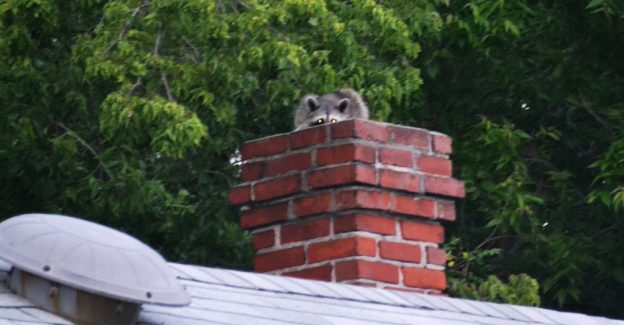
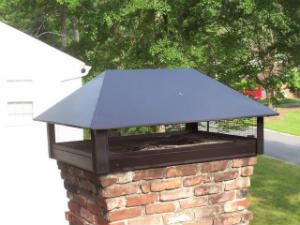 A chimney cap is the best way to prevent wildlife from moving into your chimney.
A chimney cap is the best way to prevent wildlife from moving into your chimney. 
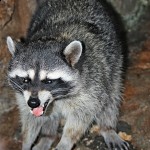 If you are hearing animal sounds in your attic at night, it is most commonly a raccoon because they are nocturnal animals and thus most active at night.
If you are hearing animal sounds in your attic at night, it is most commonly a raccoon because they are nocturnal animals and thus most active at night.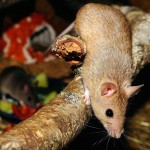 Being the smallest animal, mice will be much harder to hear. The saying “quiet as a mouse” exists for a reason. But it is possible you may hear them moving around at night. It might sound like a light scratching or chewing sound.
Being the smallest animal, mice will be much harder to hear. The saying “quiet as a mouse” exists for a reason. But it is possible you may hear them moving around at night. It might sound like a light scratching or chewing sound.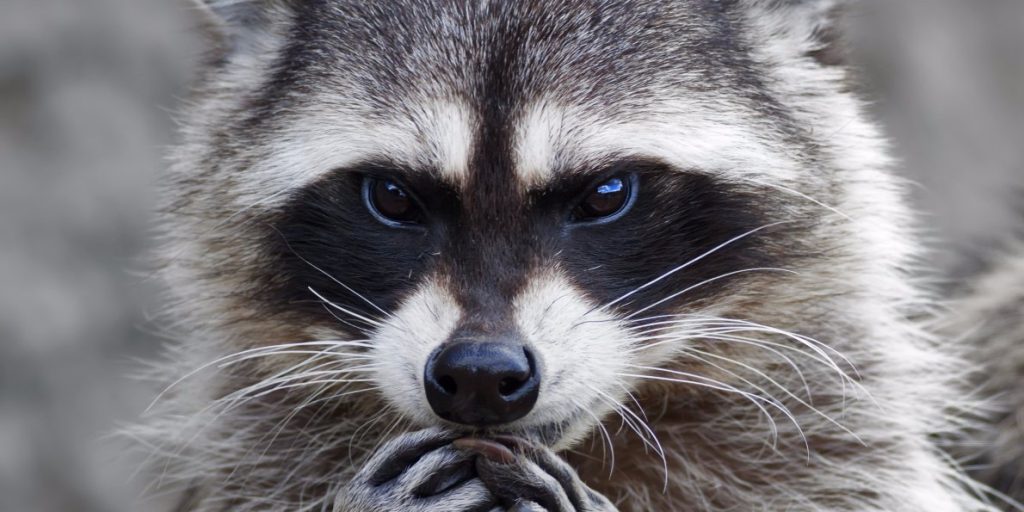
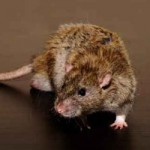 These small mammals may all be removed with no permit needed.
These small mammals may all be removed with no permit needed.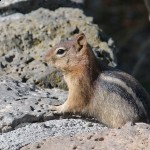 The eastern chipmunk and the thirteen-lined ground squirrels may be removed without a permit.
The eastern chipmunk and the thirteen-lined ground squirrels may be removed without a permit.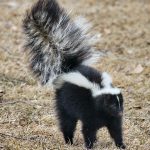
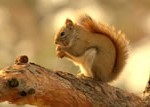 The Illinois Department of Natural Resources (IDNR) recommends hiring a professional wildlife removal service to capture and remove squirrels. If you want to remove a squirrel yourself, contact an IDNR District Wildlife Biologist to see if you qualify for a Nuisance Animal Removal Permit.
The Illinois Department of Natural Resources (IDNR) recommends hiring a professional wildlife removal service to capture and remove squirrels. If you want to remove a squirrel yourself, contact an IDNR District Wildlife Biologist to see if you qualify for a Nuisance Animal Removal Permit.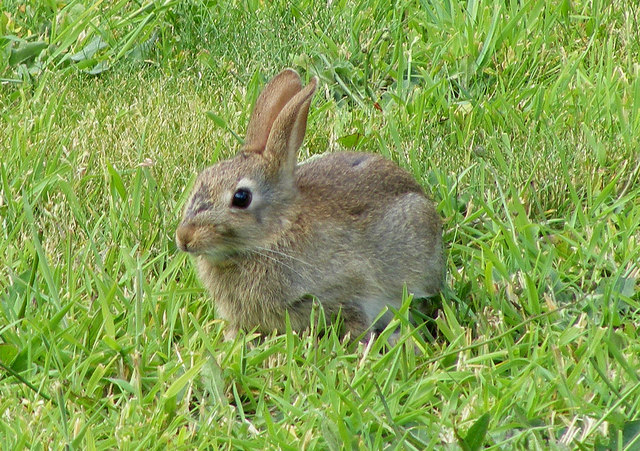 The Illinois Department of Natural Resources (IDNR) recommends hiring a professional wildlife removal service to capture and remove rabbits. If you want to remove a rabbit yourself, contact an IDNR District Wildlife Biologist to see if you qualify for a Nuisance Animal Removal Permit.
The Illinois Department of Natural Resources (IDNR) recommends hiring a professional wildlife removal service to capture and remove rabbits. If you want to remove a rabbit yourself, contact an IDNR District Wildlife Biologist to see if you qualify for a Nuisance Animal Removal Permit.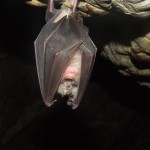 The (IDNR) recommends hiring a professional
The (IDNR) recommends hiring a professional 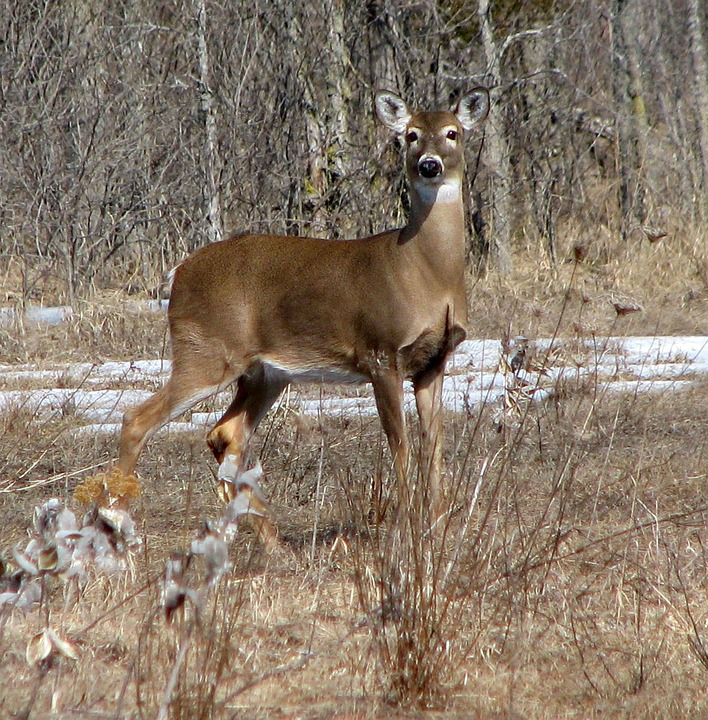 White-tailed deer are protected under the Illinois Wildlife Code as a game species. It is illegal to take live deer from the wild unless you have received a
White-tailed deer are protected under the Illinois Wildlife Code as a game species. It is illegal to take live deer from the wild unless you have received a 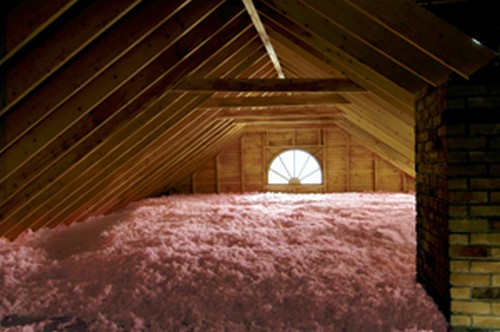
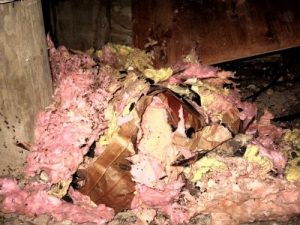 It’s extremely important to make sure all these issues are taken care of. They are not something that you would want to attempt on your own because you risk becoming infected by some diseases.
It’s extremely important to make sure all these issues are taken care of. They are not something that you would want to attempt on your own because you risk becoming infected by some diseases.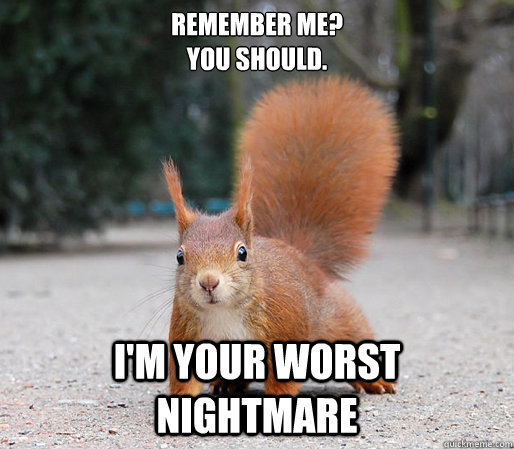
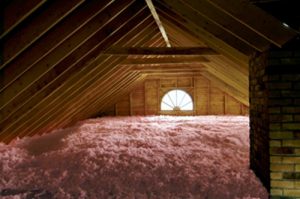 Squirrels in your walls can be a challenge. We recommend you
Squirrels in your walls can be a challenge. We recommend you  Squirrels in your garden can be extremely annoying. Sometimes they will pick whole vegetables and run off with them. What’s even more annoying to me though is their habit of taking one bite out of your vegetable and then leaving the rest on the vine or the ground.
Squirrels in your garden can be extremely annoying. Sometimes they will pick whole vegetables and run off with them. What’s even more annoying to me though is their habit of taking one bite out of your vegetable and then leaving the rest on the vine or the ground.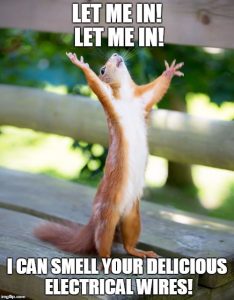 Are there squirrels plotting right now to take out the power in your home?
Are there squirrels plotting right now to take out the power in your home?
